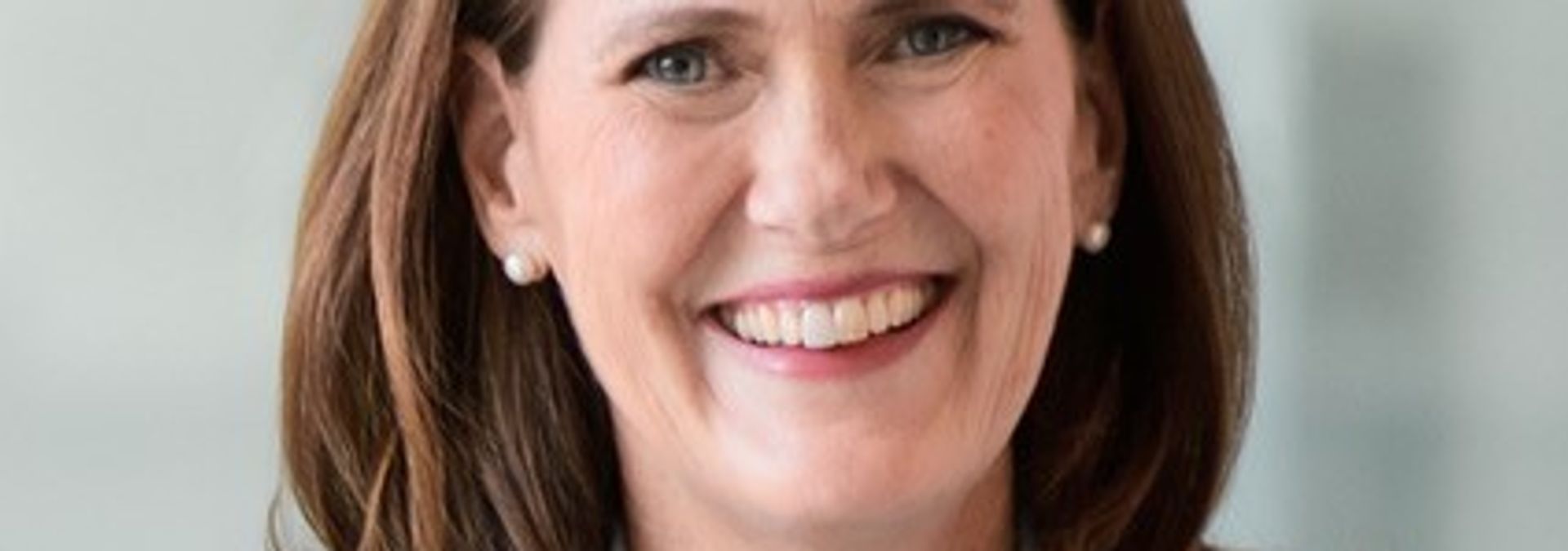
'How can we do better?': A conversation with Houston City Council Member Sallie Alcorn
When it comes to climate action and disaster recovery, equity means getting resources to communities that have been traditionally underserved, Alcorn says. Courtesy photo.
For years, Sallie Alcorn had worked as an advisor inside Houston City Hall. She likes local government, she says, because things can happen. She likes working on issues people face every day.
That’s why, after a long career behind the scenes, she ran for the city’s At-Large Position 5 and won, taking office in 2019. One of the first things her staff did was start “no-car Fridays,” when they made a point to ride transit, walk or bike to work. Alcorn says her staffer Julia Ossemi-Seied proposed the idea to show Houstonians it was possible to make small differences that could add up in big ways.
But then protecting public health during the coronavirus pandemic required that we stay home as much as we could. The pandemic has been a disaster that, like nesting dolls, keeps revealing the disasters within it, from the preexisting environmental issues that create unequal vulnerability to exposure to access to vaccination sites to the very ability to stay home in the first place. Zoom fatigue is a privilege when frontline workers return to homes exposed to illegal air pollution from the refinery next door.
How can Houston move forward? How can the city create a better “normal” going forward? Is local government still the place Alcorn thought it could be when she took office? Here, she reflects on her time in office and looks forward to the opportunities Houston has to make equity a priority.
This conversation has been edited and condensed for clarity.
Catherine Fraser: It's been almost a year and a half since you were elected, which seems like a long time ago. A record nine women were elected to serve on City Council. I remember that election evening, and the following day, there was a lot of optimism and excitement. But soon after, COVID-19 hit. I’m curious how your priorities have changed, how the city's priorities have changed.
Sallie Alcorn: We call it the pink wave. It was great. We had eight come in, because there was the delayed election in District B [that led to the election of Tarsha Jackson], but this year, we've had nine. We've had the majority on Council. Women, I think, are great at compromising, working through issues and looking out for the most vulnerable in our society. And, in my opinion, we're less interested in taking credit. We’re more interested in working together to solve the issues.
You're right about the changing focus. I tell people, when I was running for office, I had all these flashcards. Even though I'd been at the city awhile, I wanted to understand all the issues and talk intelligently about each one. And I had a whole stack of flashcards, with every subject, every issue you can imagine. I'd study the response, the information. I can tell you, a global pandemic was not on a flashcard.
So, this was a learning process for me and for many. We had to learn about public health. We had to learn fast, about how best to represent and provide the necessary materials and services.
Dealing with the economic fallout was immediate. We started researching right away in our office about rent-relief programs. Houston was slower than other cities. We've certainly caught up, and we’ve done a great job in getting money out to people. But we were noticing it right away. In April, I had one of my four children laid off and one furloughed. They were in apartments. I knew this was really going to hit people.
The city’s priorities changed. Going in, it was like, "OK, this is what I plan to do on infrastructure. And I want to do more green infrastructure projects, and I want to work on the budget, and I want to share more services with Harris County.” It became like disaster recovery, getting food and water to people. Everybody stepped up and did what we could to help. I've always advocated for the city and county to do more together in health. We're one of the only cities and counties that have separate public health departments. I've been encouraged by seeing a lot of working together.
CF: We've had a number of disasters since your election. COVID-19, namely, but also most recently, Winter Storm Uri. And the K-Solv fire just a few weeks ago. And the Watson Grinding explosion, fairly early in your term, that actually killed workers in Houston. We often talk about how, in Houston, we're pretty good at recovering from disaster.
SA: Right.
CF: Also, Houstonians are pretty tired. There's a lot that comes with these kinds of constant disasters. We've been facing this series of them, really, that goes all the way back to the ITC fire in 2019 or Hurricane Harvey in 2017. How can we get to a place where we're not constantly recovering?
SA: One of those shared services situations that's gotten better is with air quality. It was evident to me, after the ITC fire, that we had the health department, city pollution control and county pollution control all searching for monitors. We have an agreement now, and a local agreement with the county, to share services.
That was the start of it. The Watson Grinding explosion was just three weeks in after I was sworn in. My committee jointly met with the Public Safety Committee, and we were able to fix the loophole that let people not qualify as hazardous enterprises by storing the chemicals outside. We closed that loophole.
And then COVID hit. And all the hurricane seasons, as you know with climate change, with the intensity and the frequency of storms, and the freeze this year. It's just on and on and on. How can we do better? What needs to change? Everybody sees them coming, so it's not like we can prevent them. But what we can do is be as prepared as we possibly can and get better at recovering. Learn all the lessons from the disaster before and the disaster before and get better at recovering.
I recently went to a meeting in Amy Peck's district, District A. She has given this a lot of thought and wants to be prepared. A lot of the shelters, and a lot of the aid, is more centrally located, downtown. So she's locating spots where there can be water stored in the building already. We know we're going to need water. The city needs to have contracts in place with grocery stores and Home Depot and everywhere else, where we need supplies quickly, we can get supplies quickly.
The more prepared you are for each disaster, the shorter the recovery period. We have an incredible, incredible nonprofit community. I've been involved with CrowdSource Rescue. We've been delivering food, both during the freeze and during the pandemic. Amy was trying to make sure mutual aid organizations were connected, and everybody knew what everybody was doing. And we've been having to work with HUD, FEMA, the General Land Office, these other agencies a lot. We're going to have to rely on them and our federal and state partners to make sure we get the necessary funding, make the fixes, do what we can to help others. The relationships are improving, and we're learning as we go, but we all want to get better at this. I think it's unrealistic to think that we're in the clear. We have to be able to mobilize and get out our recovery efforts as quickly as possible.
CF: We talk a lot about how, with climate change, disasters are going to increase in severity, especially our storms. Our summers are going to get hotter. About a year ago now, the city released their climate action plan on Earth Day. At the time, it was a pretty quiet release, since the pandemic had started, and that was the priority. But the pandemic has exposed further the inequities in Houston, especially along lines of class and race. Has the climate plan shifted to prioritize equity? Has it shifted enough? What more could be done still to make sure that equity is at the center?
SA: Some good work has been done, and some more work can be done to make sure there's equity. That means fair treatment, not equal treatment.
When we look to the future and begin implementing new projects, we have to be aware that not every neighborhood is coming to the starting line with the same resources.
One of the Climate Action Plan’s targets is 4.6 million new native trees planted by 2030, which will help enhance Houston’s natural ability to capture and store carbon as well as making Houston’s streets more walkable by providing shade to pedestrians. Our urban tree canopy hasn’t been extensively mapped, but H-GAC’s Urban Forest GIS Tool provides enough data for us to recognize that tree density and greenspace inside the loop is concentrated in higher-income neighborhoods. When we’re procuring and planting our 4.6 million new native trees, handing them out equally wouldn’t be equitable.
We want to make sure that recoveries are equitable, as well. Historically, federal disaster recovery dollars were distributed based on formulas that heavily weighted the cost-benefit analysis, prioritizing some of those same higher-income neighborhoods. I believe the county’s ranking system for flood resiliency projects, which weights the social vulnerability index alongside physical risk and other factors, is an important part of addressing historic disparities.
Houston is an energy town, and it'll be important that we lead in the global energy transition. Energy companies provide a lot of jobs. We have a brain trust of engineering talent, 4,600 energy companies in Houston, a third of Houston's GDP comes from the energy industry, 250,000 directly employed, with an average compensation of $140,000 per year. Eighteen of the Fortune 500 companies in Houston are energy companies. These companies are seeing the writing on the wall, and they are starting to step up to lead. The energy transition is an important part of the city's climate action plan.
The best way to address equity is with providing good jobs across the board. We want to make sure that these companies are not only investing more in renewables and helping us address climate change, but also hiring people, so everybody has the ability to earn with the energy transition. As the energy industry moves forward and explores new sources and methods of producing clean energy, the workforce must also transform. We need more people to get these good-paying jobs and be part of this movement.
One other important part of the climate action plan is partnering and collaborating with K-through-12 and higher education institutions to develop the curriculum and degree plans that will prepare the leaders of the clean energy transition. We've got HISD's Energy Institute High School. It's a great example of how public schools are training the next generation of energy leaders, and local community colleges are already seeing this opportunity and creating programs to develop professional clean energy expertise, including Lone Star College’s Energy and Manufacturing Institute.
The equity discussion is so important. Resources have to get to areas that have been traditionally underserved. That’s a real focus, and that carries to education. These partnerships are crucial, so we can start young and help get people into these fields. Really, equity is about resources. You get more resources into people’s households through better jobs. We want to make sure those jobs don’t only go to the same old people. We want to make sure everyone is prepared.
Fraser is a former clean air associate with Environment Texas.
STAY UP TO DATE
The quality of our newsletter is considered satisfactory and poses little or no risk.
SUBSCRIBE

